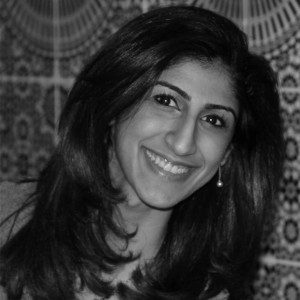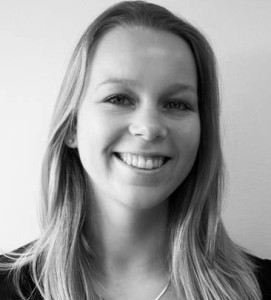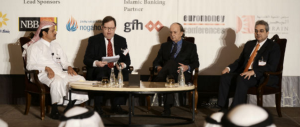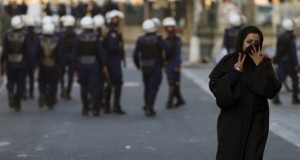Since the introduction of the National Action Charter ‘Al-Meethaq’ in 2002, women and men have equal political rights in Bahrain, giving both the right to vote and actively participate in politics. However, female presence in politics is considerably low. In this series we will address the issue of low political presence in Bahrain by dividing the problem into three articles. In “Bahraini Politics: Where Are The Women?”, we will look at the political background in Bahrain and the statistics of women serving in higher positions, as well as compare the country to other Gulf States. In the second part “The Bahraini Society: Challenging Women’s Political Presence” we explain how the male dominant society, religious influences and lack of endorsements by political societies cause women to experience pressure to withdraw from elections or stay away from the political scene, but also to feel hesitant towards participating to begin with. In “Is There Hope For Equal Political Representation?” we show how the popular uprising in 2011, has put women’s rights on a back shelf, and the challenges for both men and women have become more similar and equal, leading to an unclear future for women in politics in Bahrain. Experts and female activists propose some solutions that could gradually improve women’s political presence in Bahrain.
Bahraini Politics: Where Are The Women?
Preparations for the 2006 parliamentary elections were anything but a breeze for Mariam Al-Rowaie, one of the first few women running in Bahrain. Leading up to the day of the elections on November 25th, she had already moved to a smaller house, took out a loan to be able to fund her campaign, and lost her campaign’s leader when he was arrested and jailed by the government. She had spent a significant amount of time networking to win people’s support and attention from a location barely big enough to be considered the campaign’s headquarters. She chose to ignore occasional phone calls from her opponent’s supporters encouraging her to withdraw. She had seen text messages sent to voters by Islamists telling them it is against Islamic teachings to vote for a woman. To top it all off, she fought against bribes, turning down a tempting offer for a respectable position and a great amount of money from higher authorities, all just to prove her point. She lost the elections earning a total of 534 votes as opposed to her opponent who won with 2757 votes.
Al-Rowaie lost again in 2010. Her opponent in both years, Jassim Al Saeedi was not only an influential religious figure and had his own mosque as a platform to campaign, he also had the government’s support who allegedly favored him as a candidate. Enough reasons, she believed, to eliminate her from the scene, but that did not matter. “It was a move to show and prove women’s existence as a way to introduce the culture of acceptance, that a woman has the equal right to run for elections and have a campaign,” she said.
This is one of many stories in Bahrain where ambitious women are constantly facing roadblocks when attempting to enjoy the same privileges available for men. In this article series we focus on what hinders women to reach decision-making positions in politics.
Going Down Memory Lane
As one of many women facing similar challenges in Bahrain, Al-Rowaie is one of the few who chose to go through the battle regardless. In 1973, two years following Bahrain’s independence, only men gained the right to vote and run for elections until the parliament was dissolved in 1975. Women were excluded(1) from this short-lived democratic election mostly because they did not get the support of both Radical and Liberal men. Despite their encouragement for women to integrate in the social change and political reform, they still showed to be conservative, excluding them from political participation. The presence of a strong “traditional tribal orientation” in Bahrain’s society at the time also played a role in limiting the liberal experience to men only.
Over time, more women were educated(1) and employed in different areas including health, education, industrial and administrative positions. By 1967 there were equal numbers of schools for girls and boys, a total of ten for each gender. In the following four years, 3.1 percent of the working Bahraini population was women. By mid 70s women proved to be very visible in civil society by joining political groups of different ideologies including the Baathist, nationalists, and radical leftist groups to further social and political aims. All these developments and improvements in education and active roles in civil society still stood before the traditional values, a taboo area that was not openly challenged.
The parliament wasn’t re-established until 2002 as part of the National Action Charter ‘Al-Meethaq’ introduced by the King. The current parliament is made of an elected house of representatives, ‘Nuwab’, and an appointed consultative council ‘Shura’. Now both men and women, have the power to elect the lower house of the parliament as well as representatives in the municipal council. Article 7 of chapter 2 in the charter states “Citizens, men and women alike, have the right to participate in public affairs and political rights including suffrage and the right to contest as prescribed by law.”
Equal Representation, Unreached Target
The Kingdom of Bahrain committed to the Beijing Declaration and Platform for Action plan in 1995 to adopt the United Nations Economic and Social Council’s (ECOSOC) 1990 resolution. The resolution put forth recommendations to increase the proportion of women in leadership positions in all political bodies. The target was to reach 30 percent of women’s representation by 1995, and 50 percent by 2000. Currently, women make up fifteen percent (12 out of 80) of the seats in the parliament, and 14.8 percent of the total ministers in the country, falling behind ECOSOC’S target. However, compared to it’s sister Gulf nations, Bahrain is still in the lead.
A Larger Picture: Where Does Bahrain Stand
Among the Gulf Cooperation Council (GCC), Bahrain is seen as one of the frontrunners in women’s rights, and women play a major role in the economic sector. Bahrain comes to a similar level with Kuwait, which is considered to be the most liberal in legislating rights and empowering women in all parts of society. However in Bahrain, development in women’s rights is held back by society’s politicized sectarianism between the Sunni and Shia sects. Following Bahrain is the United Arab Emirates (UAE), Qatar and Oman in adapting women’s rights. Saudi Arabia, whose application of the Sharia law is considered “the most intense, severe and absolute,” lags far behind. In the last years, especially following the Arab Spring in the region, small steps are taken by the GCC states to improve women’s rights. In all of the Gulf States, education is the highest developed area concerning women’s rights, with women making up more than fifty percent of all students.
Women’s movements are also a growing area, especially in Kuwait, where civil societies are becoming more successful, creating educational opportunities, and influencing the government to improve the situation for women. In other countries however, women’s organizations are seen as one of four: 1. Cosmetic adaptations to international demands 2. Only tolerated because they suit the government’s plans for development, such as the Supreme Council for Women in Bahrain, and several organizations in Kuwait, 3. Not independent from the government like in Qatar and UAE, or 4. Completely absent like in Oman and Saudi Arabia.
After Oman in 1994, Bahrain was the first of the GCC to allow women to vote and participate in politics, followed by Qatar in 2003 and Kuwait in 2005. In the UAE the royal family selects a group of people who vote for the federal National Council. Saudi Arabia is the only GCC state where women are allowed to participate in politics but cannot vote. In 2011, the country introduced a quota of twenty percent representation of Saudi women in the Shura council appointed by the King. In 2004 Bahrain was the first country to appoint a female minister, soon to be followed by other Gulf states, and in 2006 the country appointed its first female judge. Right now, Bahrain has the largest proportion of women in ministerial positions.
Table 1: The proportion of women in the parliament and holding ministerial positions
| Proportion of seats held by women in parliament | Proportion of women in ministerial positions | |||||
| 2005 | 2010 | 2014 | 2005 | 2010 | 2014 | |
| Bahrain | 0 | 3% | 10% | 9% | 11% | 15% |
| Kuwait | 0 | 8% | 5% | 0 | 7% | 7% |
| UAE | 0 | 23% | 18% | 0 | 0 | 0 |
| Qatar | No parliament | 0% | 0 | 8% | 0 | 5% |
| Oman | 2% | 0 | 1% | 10% | 9% | 7% |
| Saudi Arabia | 0 | 0 | 20% | 0 | 0 | 0 |
Source: European Parliament, Inter-parliamentary Union/UN Women Watch
With the exception of Kuwait, Bahrain unlike other Gulf States still has few upper-class women in high administrative posts. However their limited number make them symbolic rather than representative(1).
Why is it still a problem?
The achievements Bahrain has accomplished might have put women on the right track towards equal rights. However the legacy of women having few personal and civil rights is still haunting them. Although many women in the Bahraini society have risen to the occasion, some women, especially in villages are still not fully aware of their rights, and are yet to be equipped with the full knowledge and courage to fight for those rights.
So why is the representation of women in the political scene in Bahrain still marginal? In other words, why is the number of women who currently hold decision making positions still considerably low?
Bahrain’s record of political and social development was still unable to erase other deeply rooted influences. The male dominant mindset combined with the widespread religious influences present women with different roles than those of men, leading to the lack of endorsement and support by political societies.
How do these challenges hold women back from taking risks and moving forward? We will have a deeper look at the root of these causes and how they influence women’s roles in the political scene in Bahrain in “The Triangle of Oppression: Challenging Women’s Political Presence.”
Bibliography
- Seikaly, M. (1994). Women and Social Change in Bahrain. International Journal of Middle East Studies, 26 (3). pp. 415-426. Retrieved from: http://journals.cambridge.org/action/displayAbstract?fromPage=online&aid=5199888&fileId=S00207438000607
Faten Bushehri is a Bahraini freelance journalist and rights advocate. Global Voices contributor and GV Check Desk editor. Current MA student in media and politics. She tweets at @Fatenhbu.
Anne Koopman is a Dutch Freelance Journalist, currently pursuing MA in Journalism, Media and Globalisation with focus on media and politics. She tweets at @koopman_anne.
The views expressed in this article are the author’s own and do not reflect that of the Bahrain Debate’s organising body.






One comment
Pingback: Women’s Political Presence in Bahrain is Still Marginal | A Global voice